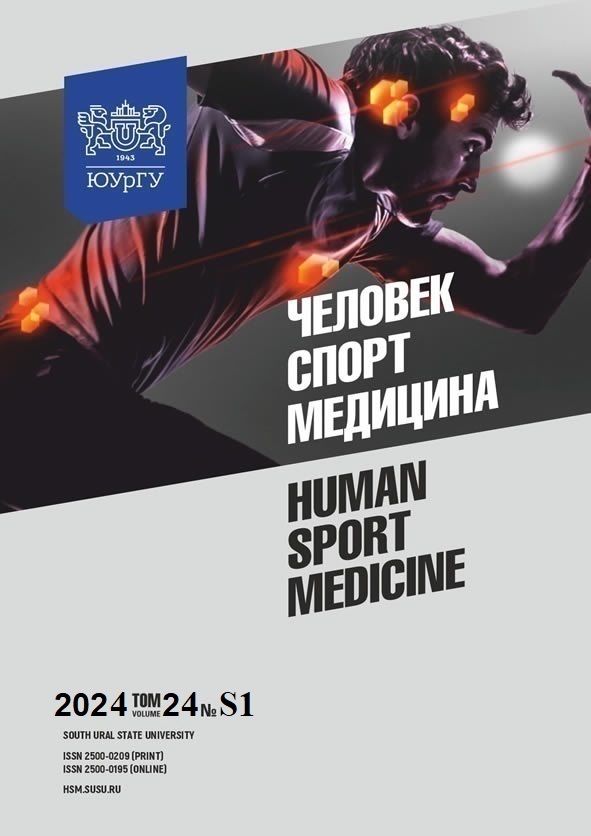ALGORITHMS FOR ASSESSING FUNCTIONAL TRAINING PERFORMANCE IN ATHLETES IN THE INNOVATIVE COMPUTER PROGRAM “CHAMPION”
Abstract
Аim. To develop algorithms for evaluating athletes’ functional state, which will be incorporated into the innovative integrated computer monitoring program for functional performance titled “Champion”. Materials and methods. A six-year longitudinal study was conducted, involving 20 young football players from the Moscow club “Lokomotiv” from their 12 to 17 years of age. Results. For the first time, algorithms have been developed to assess physical performance based on the PWC170 test and the locomotor coordination coefficient. These algorithms utilize individual and comparative norms derived from mathematical statistics. Conclusions. Comparative norms have been established for the PWC170 and locomotor coordination indices, relating to the average performance levels of young football players aged 12 years (16.4 kgm/min/kg and 1.22 – very high, 15.9–16.4 kgm/min/kg and 1.22–1.28 – increased, 15.6–15.9 kgm/min/kg and 1.28–1.32 – average, 15.2–15.6 kgm/min/kg and 1.32–1.38 – reduced, 15.2 kgm/min/kg and below and 1.38 and above – very low). Individual norms, considering annual changes for the same athlete, were also established: more than 20.8 kgm/min/ kg and less than 1.1 – very high; 19.0–20.8 kgm/min/kg and 1.1–1.19 – increased; 17.9–19.0 kgm/min/kg and 1.19–1.25 – average; 16.1–17.9 kgm/min/kg and 1.25–1.34 – reduced; less than 16.1 kgm/min/kg and more than 1.34 – very low.
References
References on translit
Copyright (c) 2024 Human. Sport. Medicine

This work is licensed under a Creative Commons Attribution-NonCommercial-NoDerivatives 4.0 International License.















